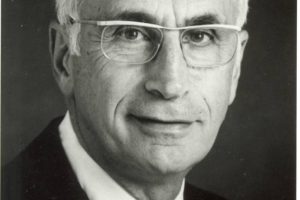

Last year, fellow UCLAer Steve Globerman and I wrote a short book for Canada’s Fraser Institute on the distinctive UCLA school. It’s now out. We’re pretty proud of it. It’s part of Fraser’s series on particular economists and on schools of thought. The schools of thought books are harder to do because you have to decide whom to exclude or say little about.
The book is here.
Here are two paragraphs from Chapter 1:
The most important member of the School was Armen Alchian, who died in 2013. Alchian taught at UCLA from 1946 until his retirement in 1984. As you will see throughout this volume, Alchian’s insights and writings underlie a distinctive theme of the School’s approach to economics: in most productive activity, the profit motive, combined with private property rights, successfully aligns the interests of producers and consumers, often in subtle ways.
As Susan Woodward, a former graduate student of Alchian’s, has noted, Alchian had no use for formal models that did not teach us to look somewhere new in the known world. Nor had he any patience for findings that relied on fancy statistical procedures. Alchian saw basic economics as a powerful tool for explaining much of human behaviour in both market and non-market settings. Much of Alchian’s work was guided by the insight: “You tell me the rules and I’ll tell you what outcomes to expect.” As Woodward has noted, Alchian believed that a huge amount of human behaviour could be understood if one got straight what the property rights (i.e., the rules) were.
The chapters are:
- What was the UCLA School?
- Can Property Rights Help Us Understand People’s Actions and Even Reduce Conflict?
- How the Profit Motive Reduces Racial and Other Discrimination.
- When Do Property Rights Come About?
- Firms Exist to Solve Problems.
- The Nirvana Approach.
- Does the High Market Share of a Few Companies Imply Market Power?
- Regulation: The Economics of Unintended Consequences.
- Do Firms Need to Maximize for the Model to Fit?
- Can Economies Recover Quickly from Disaster?
- Concluding Comments.
The pic above is of Armen Alchian. When I post on other UCLA economists’ work, I’ll use their pictures.

READER COMMENTS
Todd Moodey
Jul 24 2021 at 3:07pm
David–
Thanks for co-authoring this book–I’m sure I’ll enjoy it. What in your view is Earl Thompson’s relation to the UCLA School?
Thanks!
Todd
Bill Conerly
Jul 24 2021 at 3:37pm
Looking forward to reading this.
The chapter summaries don’t mention Clower and Leijonhufvud. The latter’s On Keynesian Economics and the Economics of Keynes has great insights I continue to rely on.
But maybe UCLA had not enough macro innovation to justify a chapter.
Thomas Lee Hutcheson
Jul 24 2021 at 5:57pm
“in most productive activity, the profit motive, combined with private property rights, successfully aligns the interests of producers and consumers, often in subtle ways”
This is a totally mainstream “insight.” Surely Alchian had something much more distinctive to say. I remember reading him in grad school without sensing that he wasn’t just one more neoclassical economist
Jon Murphy
Jul 24 2021 at 8:49pm
In the 50s and 60s, that was quite revolutionary.
Frank Berger
Jul 26 2021 at 9:38am
On the “Essential” home page Leijonhufvud’s name is shown as “Alex.” You know what it should be.
Frank Berger
UCLA MA and ABD (before the was such an official degree) 1972
I was not a star student but I knew and loved them all and they changed who I am.
David Henderson
Jul 27 2021 at 3:15pm
Thanks, Frank. I’ll tell them. I remember your name.
Jose Orellana
Aug 2 2021 at 3:03pm
David:
A great tribute to an underrated program at the time. I continued my graduate studies at an institution where they kept alive the works of Alchian and Demsetz. Those two, among others, made me fall in love with economics even more, especially after reading Alchian’s take on uncertainty, profit, and the natural selection of the market process.
Comments are closed.